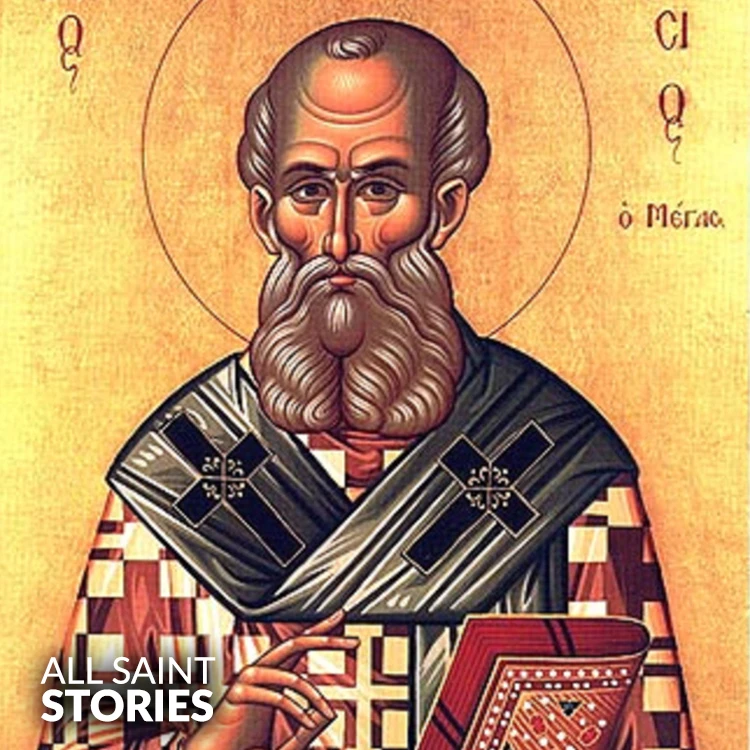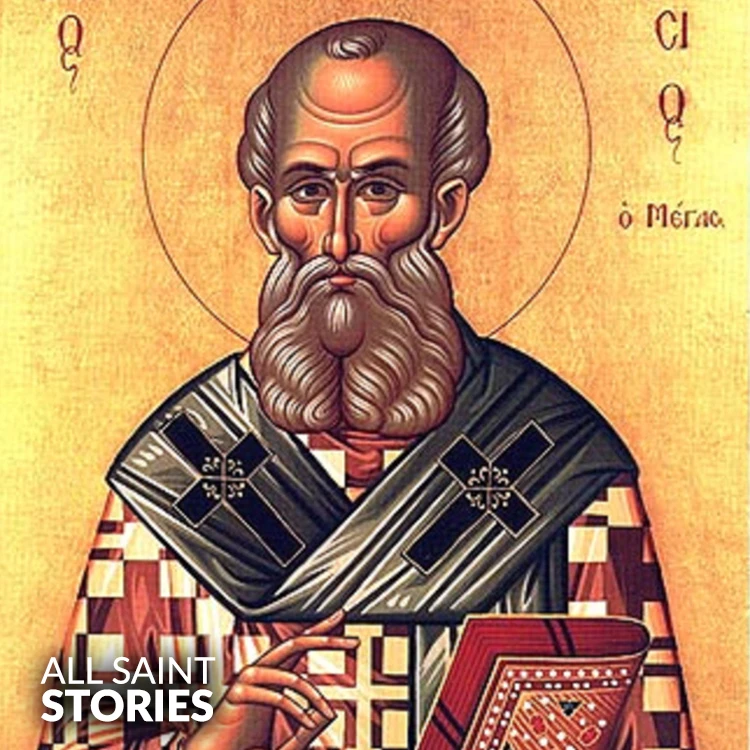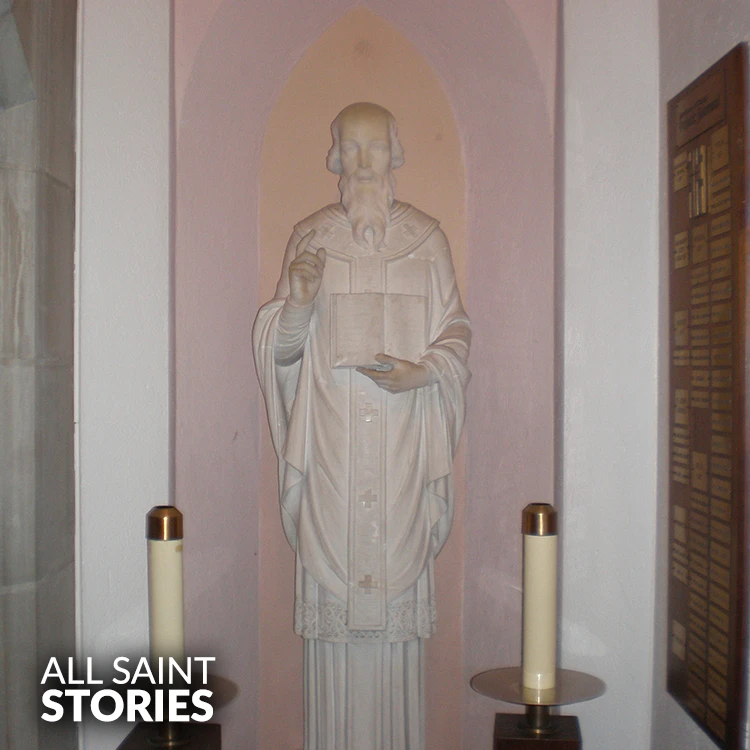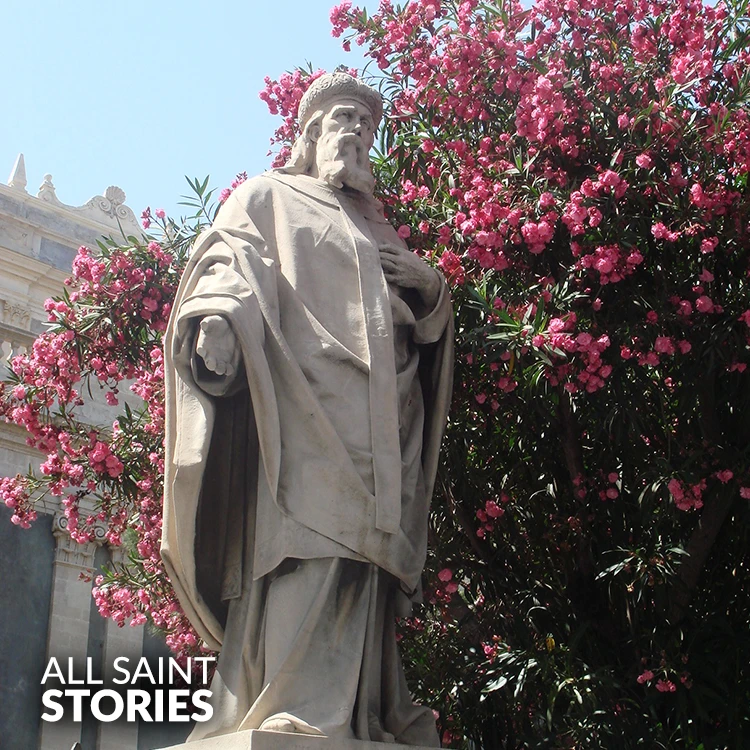Saint Athanasius, defender of the true faith, you stood firm in the face of persecution, upholding the divinity of Christ against all odds. Pray for us, that we may have the courage and strength to defend the truth with unwavering faith. Guide us in our journey to live a life of holiness, and intercede for us before the throne of God. Through Christ our Lord. Amen.
ST. ATHANASIUS
ST. ATHANASIUS

Saint Athanasius, the Bishop of Alexandria, was one of the most influential theologians in the early Church. Born around 296 AD in Egypt, he is renowned for his staunch opposition to the Arian heresy and his role in upholding the doctrine of the Nicene Creed. A prolific writer and theologian, his works played a crucial role in defining the nature of Christ and the Trinity. Athanasius spent much of his life defending orthodox Christianity, and he is revered as a Doctor of the Church. His feast day is celebrated on May 2.
St. Athanasius was likely born in
Alexandria, Egypt, to a family of prominent Christians. He received an
exceptional education in the city, which was a hub for commerce and
intellectual exchange. Even in his youth, he was recognized for his wisdom,
intellect, and deep faith. As a Deacon, he became the secretary and theological
advisor to Bishop Alexander of Alexandria. In 325, he accompanied him to the
Council of Nicaea in Bithynia (modern-day Turkey), where the teachings of Arius
were condemned as heresy and the divinity of Christ was reaffirmed. Athanasius,
a dedicated advocate for his bishop, later succeeded him as Archbishop at the
age of 33, following Alexander’s death in 328.
Throughout his 46-year tenure, Athanasius
faced opposition from the Arian faction, which gained significant influence in
the imperial court. He endured five exiles from Alexandria, spending a total of
17 years in banishment. Despite these challenges, he remained steadfast in
defending Christ’s divinity. Rather than seeking revenge against his opponents,
he sought to convert them through kindness and maintained a sharp sense of
humor.
Athanasius' unwavering defense of
orthodoxy earned him the phrase "Athanasius against the world!" Over
five decades, he played a crucial role in safeguarding the Catholic faith.
Though he once longed for martyrdom, he spent his later years in peace and
passed away at 78.
Among his many writings, On the Incarnation, written in his early
twenties, and The History of the Arians,
composed during his third exile, are highly regarded. Additionally, his Life of St. Anthony became an
influential work, inspiring many to embrace the ascetic life.
Video Not Found
The information on this website is compiled from various trusted sources. While we aim for accuracy, some details may be incomplete or contain discrepancies.
If you notice any errors or have additional information about this saint, please use the form on the left to share your suggestions. Your input helps us improve and maintain reliable content for everyone.
All submissions are reviewed carefully, and your personal details will remain confidential. Thank you for contributing to the accuracy and value of this resource.
Credits & Acknowledgments
- Anudina Visudhar (Malayalam) – Life of Saints for Everyday
by Msgr. Thomas Moothedan, M.A., D.D. - Saint Companions for Each Day
by A. J. M. Mausolfe & J. K. Mausolfe - US Catholic (Faith in Real Life) – Informational articles
- Wikipedia – General reference content and images
- Anastpaul.com – Saint images and reflections
- Pravachaka Sabdam (Malayalam) – Saint-related content and insights
We sincerely thank these authors and platforms for their valuable contributions. If we have unintentionally missed any attribution, please notify us, and we will make the correction promptly.
If you have any suggestion about ST. ATHANASIUS
Your suggestion will help improve the information about this saint. Your details will not be disclosed anywhere.
© 2026 Copyright @ www.allsaintstories.com






 English
English
 Italian
Italian
 French
French
 Spanish
Spanish
 Malayalam
Malayalam
 Russian
Russian
 Korean
Korean
 Sinhala
Sinhala
 Japanese
Japanese
 Arabic
Arabic
 Portuguese
Portuguese
 Bantu
Bantu
 Greek
Greek
 German
German
 Dutch
Dutch
 Filipino
Filipino